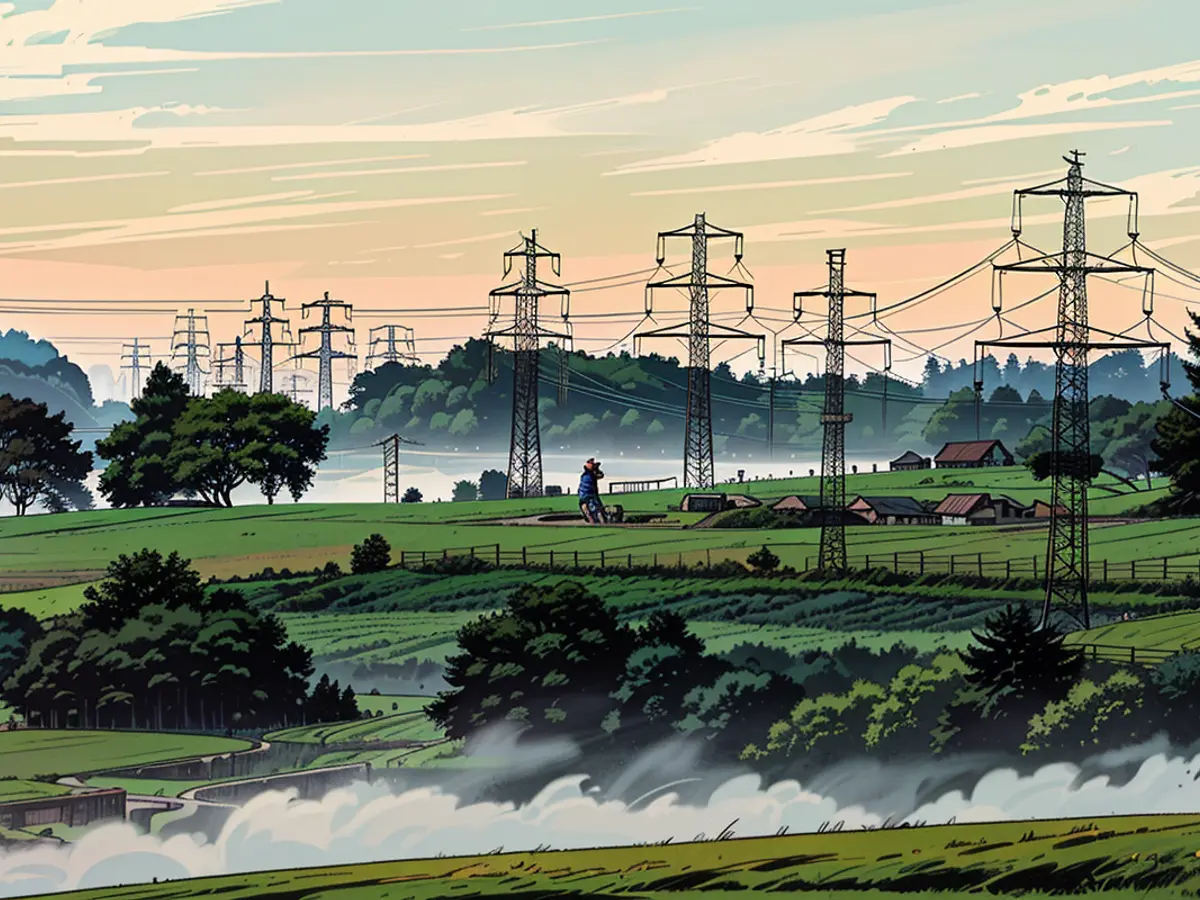New levy - "Up to three euros a month": electricity to become more expensive again
For the construction of new and the modernization of existing natural gas power plants, the Federal government is planning a new levy on the electricity price, as stated in the Federal Ministry of Economics. The new installations are intended to help stabilize the power supply even with a growing share of renewable energies.
When the sun doesn't shine and the wind doesn't blow, they are supposed to step in. However, this so-called capacity mechanism is not expected to take effect before 2028, according to the ministry. "There is currently no new electricity levy in place", it was stated.
Levy in the "realm of lower decimal places"
The Ministry explained that the planned levy would be in the "realm of lower decimal places". The mechanism would be "cost-consciously designed".
According to the price comparison portal Verivox, a typical family can expect extra costs of between one and three Euros per month due to the new levy.
Federal Minister for Economic Affairs and Climate Action Robert Habeck stated that financing through a levy is common practice for such capacities to ensure power supply in Europe. "It doesn't affect consumers yet", Habeck, the Green politician in Bonn, said. "We're talking about timeframes in the 30s. And then we'll see how we free the electricity price from other levies." It's speculation to calculate exactly what that will cost.
"State share in electricity": around 31 percent
According to Verivox, taxes, fees, and levies accounted for around 31 percent of the electricity price in the current month. Another 30 percent went towards grid fees, while the remaining 39 percent went towards electricity procurement and the margin of electricity suppliers. Before the abolition of the Renewable Energy Sources Act (EEG) levy – which financed the expansion of renewable energies – in July 2022, the state share in the electricity price was significantly higher.
This project is part of the plans for a new power plant security law, which Chancellor Olaf Scholz (SPD), Habeck, and Finance Minister Christian Lindner (FDP) recently agreed on. In total, capacities of 12 Gigawatts (GW) are to be created, as well as 500 Megawatts of storage.
Levy for five Gigawatts
Five Gigawatts of new natural gas power plants are to be built, which can also be operated with climate-friendlier hydrogen at a later stage; in addition, existing power plants are to be converted. Capacities in the amount of five Gigawatts are to be financed from the Climate and Transformation Fund of the Federal government, while another five Gigawatts are to be financed through the aforementioned levy.
The Federal Government is planning to fund part of the construction and modernization of gas-fired power plants through a new levy on the electricity price, as announced by the Federal Ministry of Economics. Robert Habeck, the Federal Minister for Economic Affairs and Climate Action, has stated that financing through levies is common practice for securing power supply in Europe. According to Verivox, a typical family may incur extra costs of between one to three Euros per month due to this new levy. The Federal Ministry of Economics mentioned that the proposed levy would be cost-consciously designed and would be in the "realm of lower decimal places".








